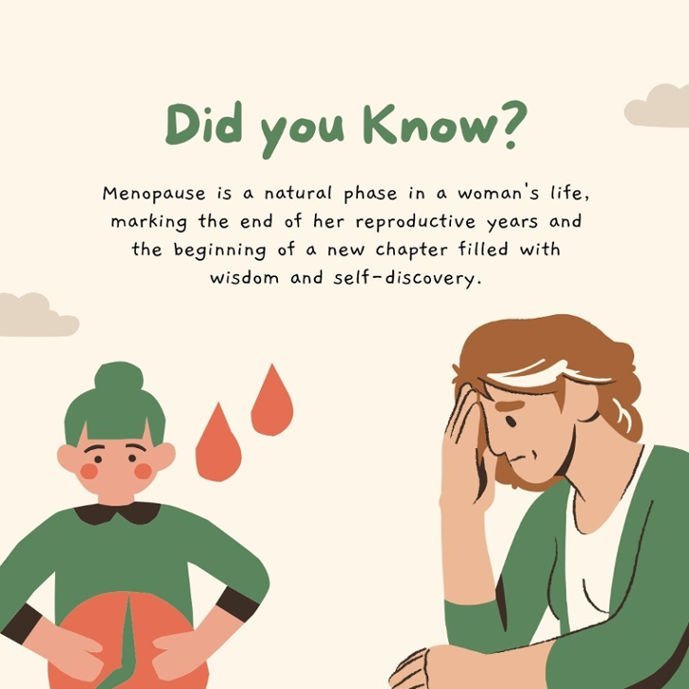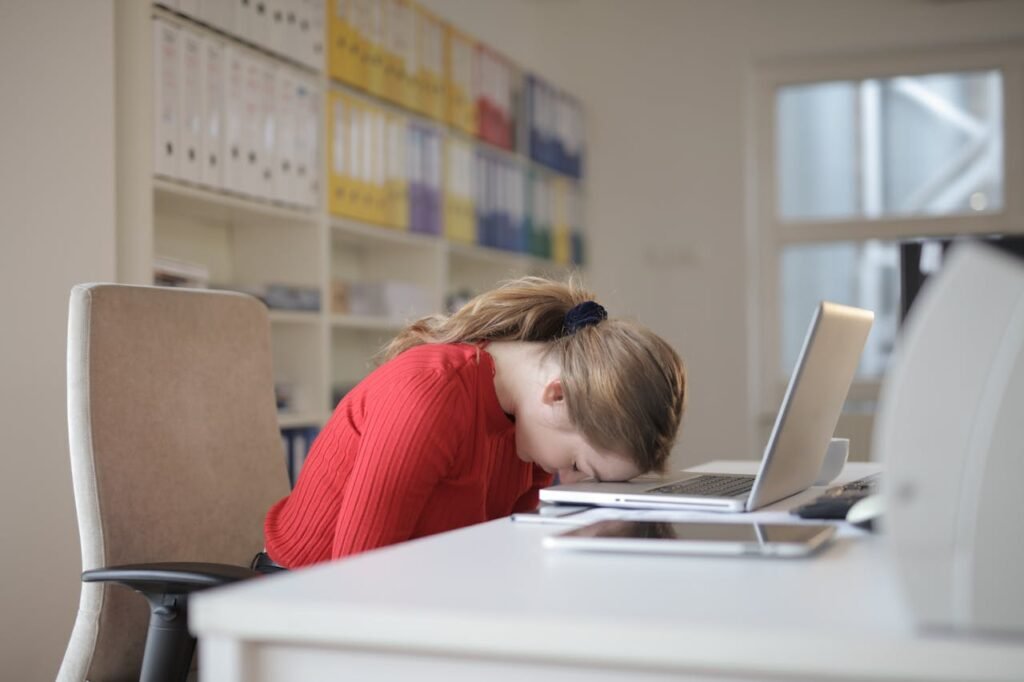Introduction to Menopause Symptoms
Menopause, which signifies the termination of women’s reproductive years, is a major life transformation. In menopause symptoms, hormonal, physical, and emotional changes are all part of a normal biological process. It is essential for women to comprehend and proficiently handle menopausal systems in order to preserve their overall health and standard of living.

The Occurrence of Menopause
In women, there is a certain age after which they go through menopause between the ages of 45 and 55; however, this might vary from individual to individual. It indicates the termination of fertility and the end of menstruation. Hormonal imbalance and a variety of symptoms are caused by the ovaries’ steady reduction in estrogen and progesterone production throughout menopause.
Symptoms of Menopause
There are many symptoms that cause the intense effects on body physiology of women.
Common Menopause Symptoms
- Hot Flashes
Hot flashes, one of the main signs of menopause, are characterized by abrupt sensations of warmth, flushing, and perspiration, frequently accompanied by chills and a fast pulse.
- Night Sweats
Like hot flashes, night sweats can happen when you are sleeping and can interfere with your ability to get a good night’s sleep, which makes you tired and agitated throughout the day.
- Mood Swings
Hormonal imbalance during menopause can cause mood swings, such as feelings of melancholy or despair, anxiety, and impatience.

- Sleep Disturbances
During menopause, many women encounter disturbances in their sleep habits, such as trouble falling asleep, frequent awakenings, and generally poor sleep quality.

- Vaginal Dryness
Reduced estrogen levels can cause dryness and irritation in the vagina, which can hurt during sexual activity and increase the risk of UTIs.
- Weight Gain
Weight gain during menopause might be attributed to hormonal shifts and metabolic changes, especially in the abdominal area.
Lesser-Known Symptoms
- Memory Lapses
During menopause, some women may have memory and concentration issues, a condition known as “menopause brain fog.”.
- Joint Pain
Reduced estrogen production and hormonal fluctuations can cause joint discomfort and stiffness.
- Hair Loss
Hormone fluctuations can also impact the development of hair and cause thinning or hair loss in certain women going through menopause.
- Changes in libido
Menopause directly affects the levels of hormones that change or reduce sexual desire or libido. It can affect both contentment in the sexual process and activeness.
Impact of Menopause Symptoms on Daily Life
There are many complications in daily life linked to this condition. Many physiological problems are encountered in the daily routine of a woman, and physical distress endorses these difficulties.
Coping Strategies
Lifestyle Adjustments
The time of menopause is directly related to lifestyle, especially diet and physical activity. Diet quality improves physical health, and physical activity brings the mental condition to a good level by reducing stress.
Hormone Replacement Therapy (HRT)
Hormone therapies (HRT) are used to maintain the estrogen and progesterone levels, which help minimize the signs of menopause and reduce bone damage in females.
Alternative Therapies
Many alternative treatment options are also available to reduce the effects of menopause. Yoga, herbal medicines, and acupuncture sometimes give relief to this condition and improve overall wellbeing.
Healthy Lifestyle Changes
- Diet Modifications
Diet plays an important role in combating this situation. It is important to have a healthy diet plan with vegetables, fruits, and protein sources like meat, eggs, and lentils. These all can boost the immunity that results in the wellness of the patient.

- Daily Exercise
An active lifestyle is the key to improving bone density, suppressing menopause symptoms, and improving mood. Many activities like yoga, cardio, swimming, sports, and walking can help in this situation.
- Stress Management Techniques
Mindfulness and contentment can improve stress levels, and this can be achieved through deep breathing. So, to maintain a low stress level, the wellbeing of the patient can be improved.
- Seeking Professional Help
Women with severe menopausal conditions can seek help from a medical specialist. Each patient has their own symptoms and severity levels, so customized treatments can be more helpful with the consultation of a healthcare specialist.
- Support Networks and Resources
With technological advancements now, there are many options available for women to gain knowledge. They can seek information from online sources from different healthcare groups. Social media is also providing a good source of information. Different seminars and workshops can be attended to improve knowledge of this condition. With improved knowledge, coping strategies can be designed properly.
Conclusion
Menopause is a normal phase of life that involves several hormonal, physical, and emotional changes. Through knowledge of menopausal symptoms, the adoption of healthy lifestyle modifications, professional assistance when required, and the utilization of support systems and resources, women may confidentlynegotiatethis shift and welcome the next phase of their lives.
FAQs
Are all women affected by menopause symptoms?
Not all women experience severe menopause symptoms, but most will undergo some degree of hormonal change during menopause.
What are the risks associated with hormone replacement therapy (HRT)?
There are many risks associated with HRT, including the increased risk of blood, breast cancer, and heart stroke, which should be carefully considered and discussed with a healthcare provider.
Can menopause symptoms be managed without medication?
Yes, lifestyle modifications, alternative therapies, and supportive measures can often help manage menopause symptoms effectively without the need for medication.
How long do menopause symptoms typically last?
Menopause symptoms can vary in duration and intensity but commonly persist for several years, gradually improving over time.
What age does at menopause usually occur?
Menopause usually appears between the ages of 45 and 55, though the timing for each woman can vary.

